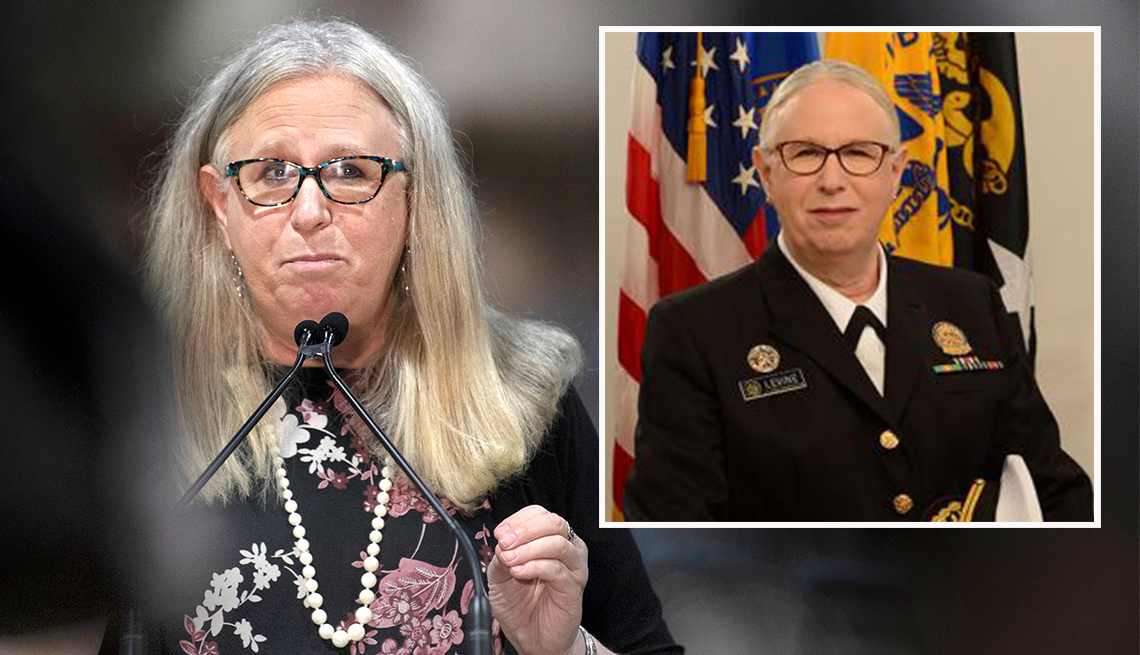Staying Fit
| The nation's highest-ranking openly transgender federal official has made history again upon being sworn in as a four-star admiral.
Pediatrician Rachel Levine, the assistant secretary of health at the U.S. Department of Health and Human Services, became the U.S. Public Health Service Commissioned Corps' first ever-female four-star officer upon being sworn in Oct 19. The 6,000-person U.S. Public Health Service Commissioned Corps is one of the nation's eight uniformed services and works to advance public health issues and provide health-related disaster relief.


AARP Membership— $12 for your first year when you sign up for Automatic Renewal
Get instant access to members-only products and hundreds of discounts, a free second membership, and a subscription to AARP the Magazine.
After being sworn in, Levine, 63, said she was "ready to be a beacon in these dark days of COVID-19" and noted the importance of her achievement.
"This is a momentous occasion and I am honored to take this role for the impact that I can make and for the historic nature that it symbolizes," Levine said. "I stand on the shoulders of those LGBTQ-plus individuals who came before me, both those known and unknown."
LGBTQ advocacy organizations and health leaders lauded the historic event. Levine’s “appointment represents an important step towards a more inclusive future, and her service will undoubtedly advance the USPHS Commissioned Corps’ mission to protect, promote, and advance the health and safety of our nation,” said a statement from U.S. Surgeon General Vivek Murthy, a vice admiral in the corps.
Levine this year became the first openly transgender federal official to be confirmed by the U.S. Senate, prompting elation from many in the LGBTQ community.
A journey of leadership
Levine, 63 grew up in Massachusetts and received her medical degree from the Tulane University School of Medicine in New Orleans. She completed a residency in pediatrics at New York City's Mount Sinai Medical Center and a few years later began working at the Penn State Milton S. Hershey Medical Center. There, she facilitated LGBTQ groups and was instrumental in the formation of the hospital's adolescent treatment division and eating disorders clinic.



































































